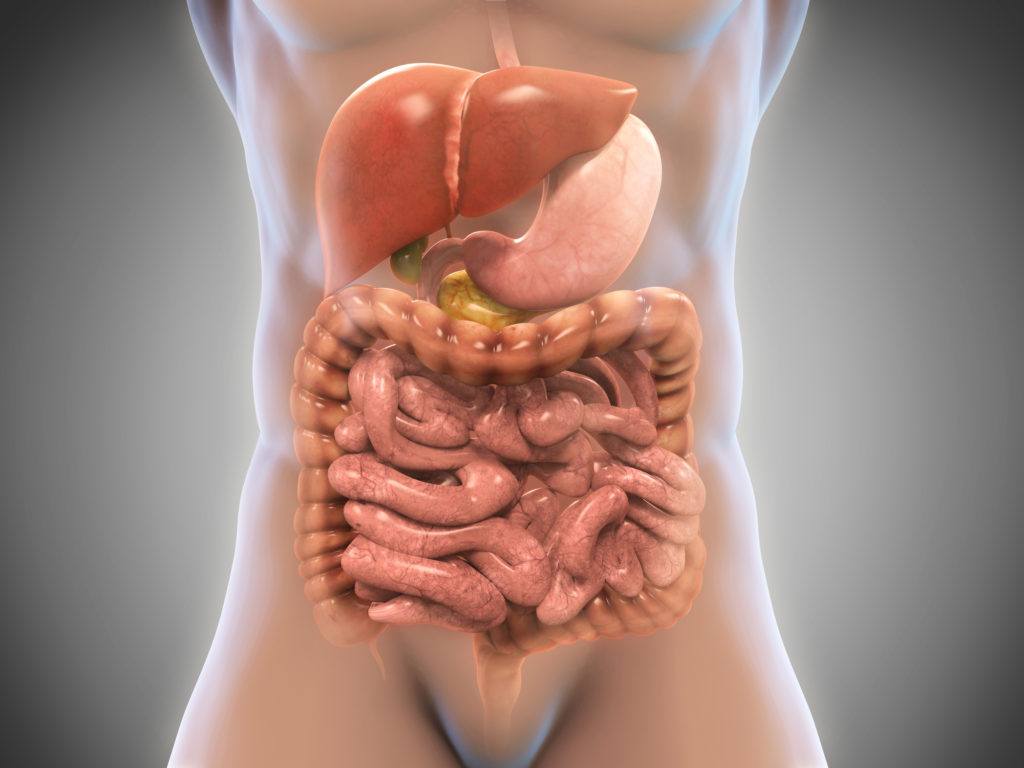
How many times have you heard the saying “listen to your gut”? Your gut isn’t just good to use to see if something’s off or not right. It’s important to listen to your gut since it’s usually trying to tell you something. Have you ever experienced butterflies when you’re nervous or felt gassy or bloated after eating certain foods? We’ve all been there before, and it’s your gut’s way of telling you that something is off.
Did you know that nearly 75% of Americans are living with some sort of digestive issue? An imbalanced gut has also been linked to chronic diseases, including obesity, diabetes, heart disease, and Crohn’s. Because nearly everything you do impacts your gut microbiome, it’s essential to make sure your gut is in tip-top shape, from the inside out.
Because your gut is connected to nearly every system and organ in the body, your daily choices and habits have a significant impact on it.
What you eat, how you feel, if you’re stressed out or not–all these things (and more!) can contribute to gut imbalances. Don’t think your gut being “off” is important, check out below.
Signs of an imbalanced gut include:
- Headaches
- Mood swings
- Fatigue
- Depression or anxiety
- Digestive issues, like gas or bloating
- Suppressed immunity or autoimmune disorders
- Skin problems, like eczema
- Food allergies or sensitivities
Here are a few tips to get your gut back in order by detoxing every morning:
Hydrate your butt off!
Water is one of the easiest (and cheapest!) ways to cleanse your body. Try breaking up your daily coffee, caffeinated beverage, or sweetened drink with just water. It’s the best way to stay hydrated consistently.
“Well, I don’t like the taste of water” I hear some of you say. Well, that’s fine, just add fruit.
Adding fruit to your water gives you both flavor and natural sweetener to your water, which may trick you into thinking you’re drinking a flavored drink.
RELATED: The 13 Best Foods For Instant Full-Body Detox
Focus on Fermented Foods
Fermented foods are a type of probiotic that supports your microbiome and promotes good bacteria. They also improve digestion, decrease inflammation, increase immunity, and may help protect from infection (which reduces the need for antibiotics).
Examples of fermented foods include:
- Kefir
- Kimchi (list continues on next page)
- Kombucha
- Miso
- Pickles
- Sauerkraut
- Tempeh
- Yogurt
Don’t Forget about Fiber
We often get caught up in macronutrients: protein, fat, and carbs. But if there’s one nutrient we should be paying more attention to, especially when it comes to gut health, it’s fiber.
Fiber can help prevent constipation and other digestive problems while reducing the risk for chronic diseases, including type 2 diabetes and heart disease.
If you’re looking to enhance your gut health, we suggest upping your intake of fiber-rich foods, such as:
- Artichokes
- Asparagus
- Bananas
- Chicory
- Garlic
- Leeks
- Onions
- Pears
- Raspberries
Wanna go the extra mile? Go for the whole grains
Whole grains are also a great source of fiber, but fruits and veggies really provide your gut microbiome with the support it needs to thrive.
If you don’t regularly consume both throughout the day, make it a habit to add some at each meal.
RELATED: Detoxes & Cleanses: Health or Hype?
Consider Herbal Teas
Why: Certain herbal teas, like ginger, peppermint, and chamomile, can help soothe digestion and reduce bloating.
Tip: Enjoy herbal teas regularly, especially after meals.
Apple Cider Vinegar
Some people find that drinking a small amount of apple cider vinegar diluted in water can help with digestion and bloating.
Tip: Start with a small amount (1-2 teaspoons) and gradually increase as tolerated.
Ok, one more: Stop stressing.
I know in this day and age, it’s easier said than done to stop stressing, but it’s really affecting us (like, for real). Stress is a leading disruptor of healthy gut bacteria and can negatively impact digestion and gut health.
Although moderate stress can sometimes help motivate you to complete a task or overcome an obstacle, chronic or severe stress can negatively affect your physical, mental, and emotional health. Practice stress-reducing techniques like deep breathing, meditation, or yoga.









